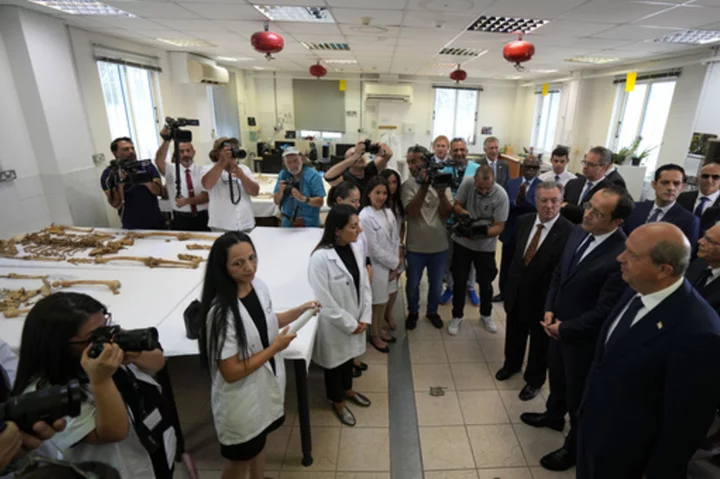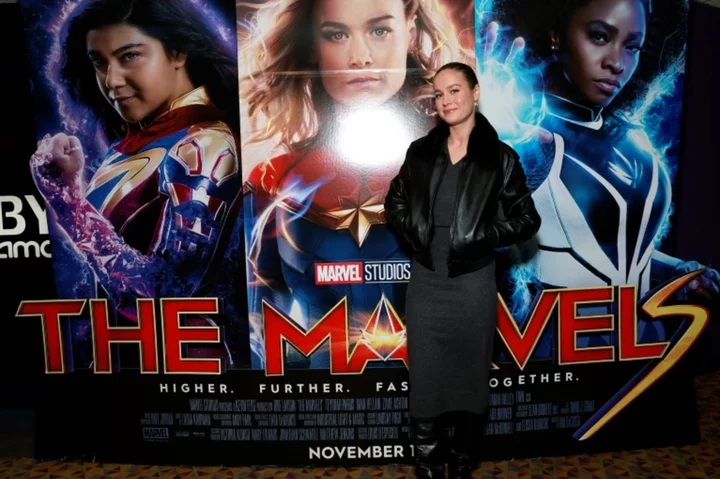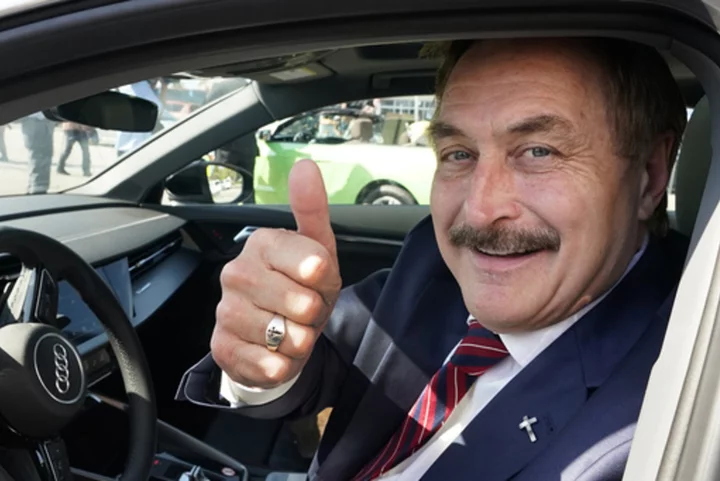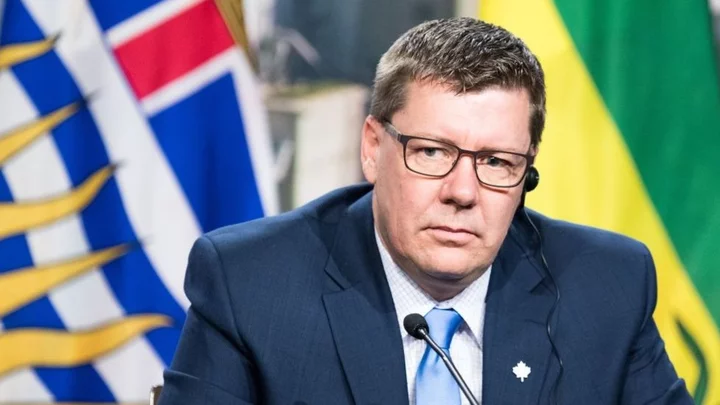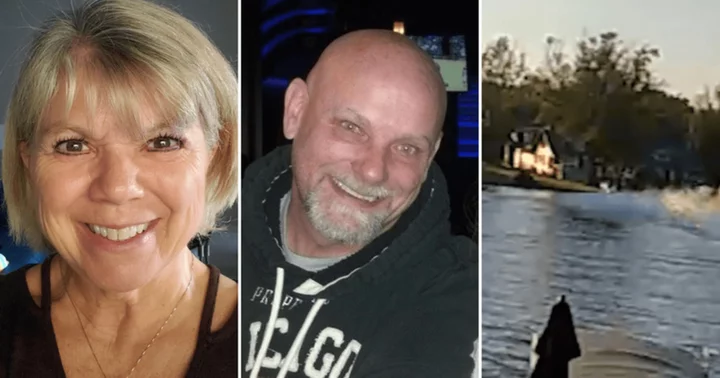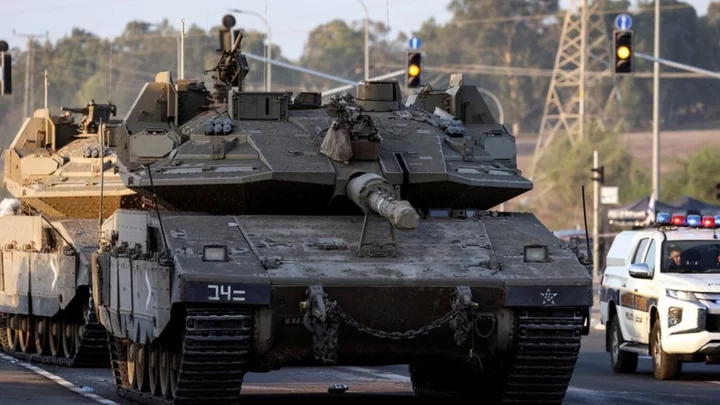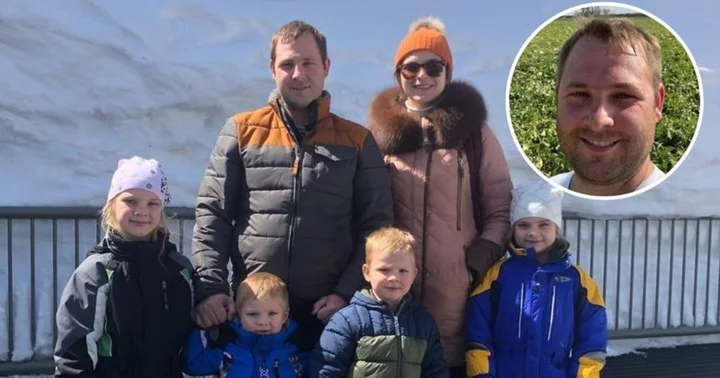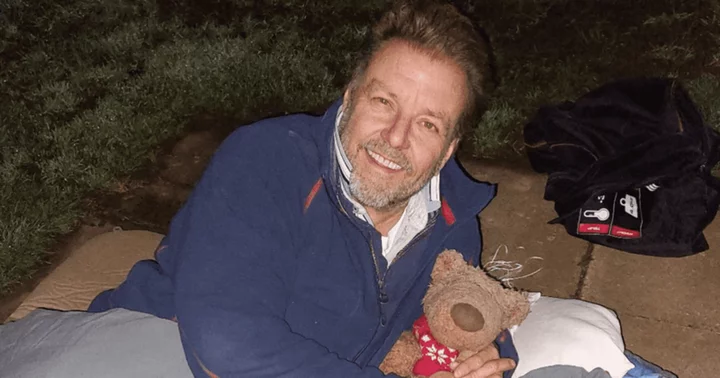NICOSIA, Cyprus (AP) — The rival leaders of ethnically divided Cyprus on Friday jointly appealed for information that could lead to the buried remains of people who vanished amid violence and war decades ago, a task with increasing urgency as eyewitnesses die.
Cyprus’ Greek Cypriot President Nikos Christodoulides and Ersin Tatar, the leader of the breakaway Turkish Cypriots, made the appeal in a symbolic move aiming to show that the purely humanitarian issue should stay above the complex and often bitter politics of the nearly half-century ethnic split.
It also sought to inject some fresh urgency into efforts to resume deadlocked peace talks. A deal has eluded Cypriot leaders since a 1974 coup aiming at union with Greece triggered a Turkish invasion that entrenched that division.
Both Christodoulides and Tatar toured the Committee on Missing Persons (CMP) that has, since 2006, been tasked with locating, unearthing and identifying the remains of individuals who vanished during clashes in the early 1960s and the 1974 invasion.
“This is a humanitarian issue, therefore this is something which is outside politics,” Tatar told reporters. “What ever we can do to improve, as I saw the discovery of missing persons is something that we owe to the families.”
Christodoulides echoed a shared commitment to collect more information, but added that progress on this issue would also send a “clear political message” about building trust between the two sides that haven’t engaged in direct talks in six years.
Information is now at a premium, said Paul-Henri Arni, the U.N. appointed member of the tripartite committee that also includes a Greek and Turkish Cypriot representative.
Arni told The Associated Press that the CMP has found, identified and returned to relatives the remains of 51.5% of all missing persons.
But having the leaders nudge anyone with information to step forward is essential to resolving the most difficult remaining cases, in which individuals were killed at one spot and buried elsewhere without witnesses.
According to CMP figures, of 1,510 Greek Cypriots and 492 Turkish Cypriots who are missing, 769 and 200 respectively have not been found.
“The issue is access to new information at the moment where witnesses are passing away,” Arni said. “And so we’ve discussed with the leaders ways they could help us through the own networks, also with specific former combatants.”
Work is slow as the chances of finding remains at excavated sites currently stands at 10% -- far below the 50% when the CMP began work in earnest in 2006.
Arni said another key source of information are archived witness accounts which have been digitized for easer access, as well as sifting through 900,000 pages of U.N., U.K. and International Committee of the Red Cross archives which produced 3,740 documents of actionable data.
Christodoulides told reporters following the visit to the CMP premises that access to Turkey military archives is still restricted.
Some 80% of the CMP’s 3.2 million euro ($3.5 million) annual budget is funded by the EU and Arni said additional funding would enable the committee to augment is current number of seven excavation teams to speed up work on 65 new sites.
Christodoulides said it would be a “shame” for more information becoming available but without additional teams to act on them, adding that he would formally ask the EU for more funding.

